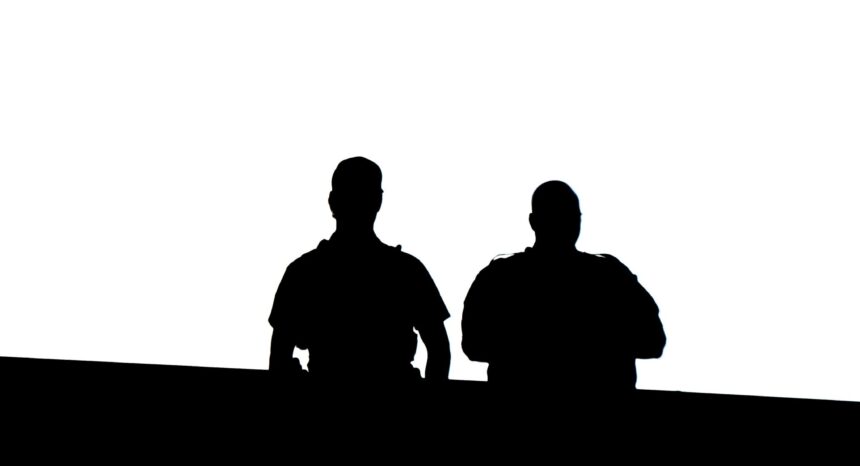Some 43% of Black men who identify as gay, bisexual or other sexual minority say they experienced discrimination from police and other law enforcement officers in the past year, according to a survey of more than 1,000 Black sexual minority men from across the U.S. analyzed in new research published in Social Science & Medicine. The researchers also found an association between law enforcement and police discrimination and survey participants being less willing to take medication highly effective at preventing HIV contraction.
“Black sexual minority men are largely invisible in the research and discourse on the effects of policing and incarceration in the U.S.,” says Devin English, assistant professor of public health at Rutgers University and lead author on the paper. “Often the story we read or research we produce implicitly or explicitly focuses on heteronormative experiences. We conducted this study to fill that gap.”
The authors analyzed survey responses from 1,172 Black sexual minority men, most of whom identified as gay, were single and had some college education. About 86% had never been incarcerated and 98% hadn’t been arrested within the three months prior to the survey, conducted online starting in 2017. The authors note “the demographics of our participants were not entirely representative of Black LGBT communities generally and experienced lower rates of incarceration and arrests than Black [sexual minority men] in past studies.”
Responses were culled from the Understanding New Infections Through Targeted Epidemiology study — UNITE — out of Hunter College. Researchers in 2017 started recruiting 8,000 sexually active HIV-negative men who have sex with men from across the U.S. and Puerto Rico for research on factors that lead to HIV infection. Researchers particularly recruited Black, Latino and multiracial participants through targeted advertisements on social media and sexual networking sites.
Police discrimination, life-saving medication
Past analyses from other researchers haven’t identified a link between incarceration and sexual minority men being aware of pre-exposure prophylaxis, or PrEP, a daily medication that can reduce the risk of getting HIV by 99% for people who don’t use intravenous drugs, according to the U.S. Centers for Disease Control and Prevention. The current paper is the first “to show a negative association between police and law enforcement discrimination” and willingness to use PreP, the authors write.
The authors offer that “a likely explanation may be that incarceration and police discrimination lead to a conscious, and potentially adaptive, avoidance of institutions that have a history of discriminating against Black [sexual minority men].” Other research suggests Black men who have sex with men have high levels of distrust of medical institutions, with many feeling stigmatized by health care providers because of their race and sexual orientation.
Consider the experience of going to a public health clinic, English says. One of the first things a patient may see when entering the clinic is a security guard, who may resemble a law enforcement officer.
“This research shines a light on how we are structuring our clinics,” English says. “Are we considering how having metal detectors or security guards resembles other experiences that Black sexual minority men have had, like experiences of oppression from police?”
Describing law enforcement and police discrimination
English and other researchers previously developed a framework for describing racial discrimination called the Police and Law Enforcement Scale, based on interviews with 90 Black men in Atlanta, Columbus and Valdosta, Georgia who said they had experienced law enforcement or police discrimination. One interviewee recalled a traffic stop that went like this:
“‘Hey why’d you pull me over?’ ‘[The officer said], you got a broken taillight.’ ‘[I said], I don’t got a broken taillight.’ Pow… ‘[The officer said], you do now. Come on get out the car.’”
The Police and Law Enforcement Scale captures perceived discrimination based on several questions, including: In the past five years, how often have police or law enforcement accused you of having or selling drugs? Pulled you over for no reason while you were driving? Been verbally abusive to you? Been physically abusive to you? Treated you unfairly because of how you dress? Participants in the UNITE study were asked those and similar questions.
“Many crime statistics are based on the perspective of police officers,” English says. “We rely solely on police officers to report their own behavior, to report when they stop and frisk someone, to report when they’re pulling someone over. It’s really important we ask community members about their experiences, too.”
The authors also found participants who said they had encountered law enforcement or police discrimination were more likely to experience psychological distress as a result. Other research has drawn similar conclusions on how encounters with the criminal justice and law enforcement systems are linked to stress in Black communities.
“A vast theoretical and empirical literature documents the deleterious impact of mass incarceration on the health not just of those incarcerated, but also their families and, in the case of neighborhoods characterized by high rates of incarceration, entire communities,” write the authors of a January 2020 paper in the American Journal of Public Health that examines police encounters and symptoms of depression in Black men in the U.S. One of the authors of that paper, Lisa Bowleg, is a psychology professor at George Washington University and a co-author of the current paper.


Expert Commentary